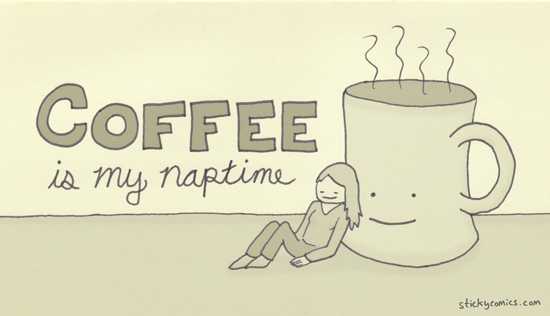To the devastation of practically every living, breathing adult, researchers at the American Academy of Sleep Medicine have revealed coffee isn’t the end-all, be-all energy booster we desperately want and need it to be: Caffeine is ineffective after three days of sleep restriction.
In the double blind, placebo-controlled study, published in the journal Sleep and presented at SLEEP 2016—the 30th Anniversary Meeting of the Associated Professional Sleep Societies LLC—researchers corralled 48 healthy men and women into a sleep lab and limited their sleep to five hours for a total of five days.
Participants were given either 200mg of caffeine (the equivalent of 8oz of brewed coffee) or a placebo twice daily. Six times a day, the researchers administered a modified “Maintenance of Wakefulness Test” to measure how alert subjects were during the day by seeing if they could stay awake and remain alert during quiet times of inactivity.
Specifically, the test isolates people from factors that can inhibit their ability to fall asleep, like temperature (too hot or cold), light, noise, and activity.
Additionally, researchers gave participants a cognitive task battery, a test typically used to diagnose ADHD and related cognitive disorders, hourly during their wake periods.
Participants also completed a 10-minute “psychomotor vigilance task” (PVT) to measure the impact of sleep loss, sustained wakefulness, and neurological performance, and were asked to complete a Profile of Mood States (POMS)—65 self-report items using a 5-point scale—and the Stanford Sleepiness Scale (SSS), which allows participants to rate how alert they’re feeling.
In short, they were put through enough testing to knock a guy out—cold.
After the study, researchers found caffeine significantly improved Psychomotor Vigilance Task (PVT) performance during the first 2 days, but not the last 3 days of sleep restriction. It didn’t help participants at all.
“We were particularly surprised that the performance advantage conferred by two daily 200mg doses of caffeine was lost after three nights of sleep restriction,” lead author Tracy Jill Doty, Ph.D., said in a press release.
“These results are important, because caffeine is a stimulant widely used to counteract performance decline following periods of restricted sleep. The data from this study suggests that the same effective daily dose of caffeine is not sufficient to prevent performance decline over multiple days of restricted sleep.”
Don’t turn to drastic measures, like energy drinks, though. The huge amounts of caffeine and sugar can trigger depression, anxiety, and mess with your heart. Take a nap instead—and do what you can during the day to fall asleep faster at night.
Brittany Smith















